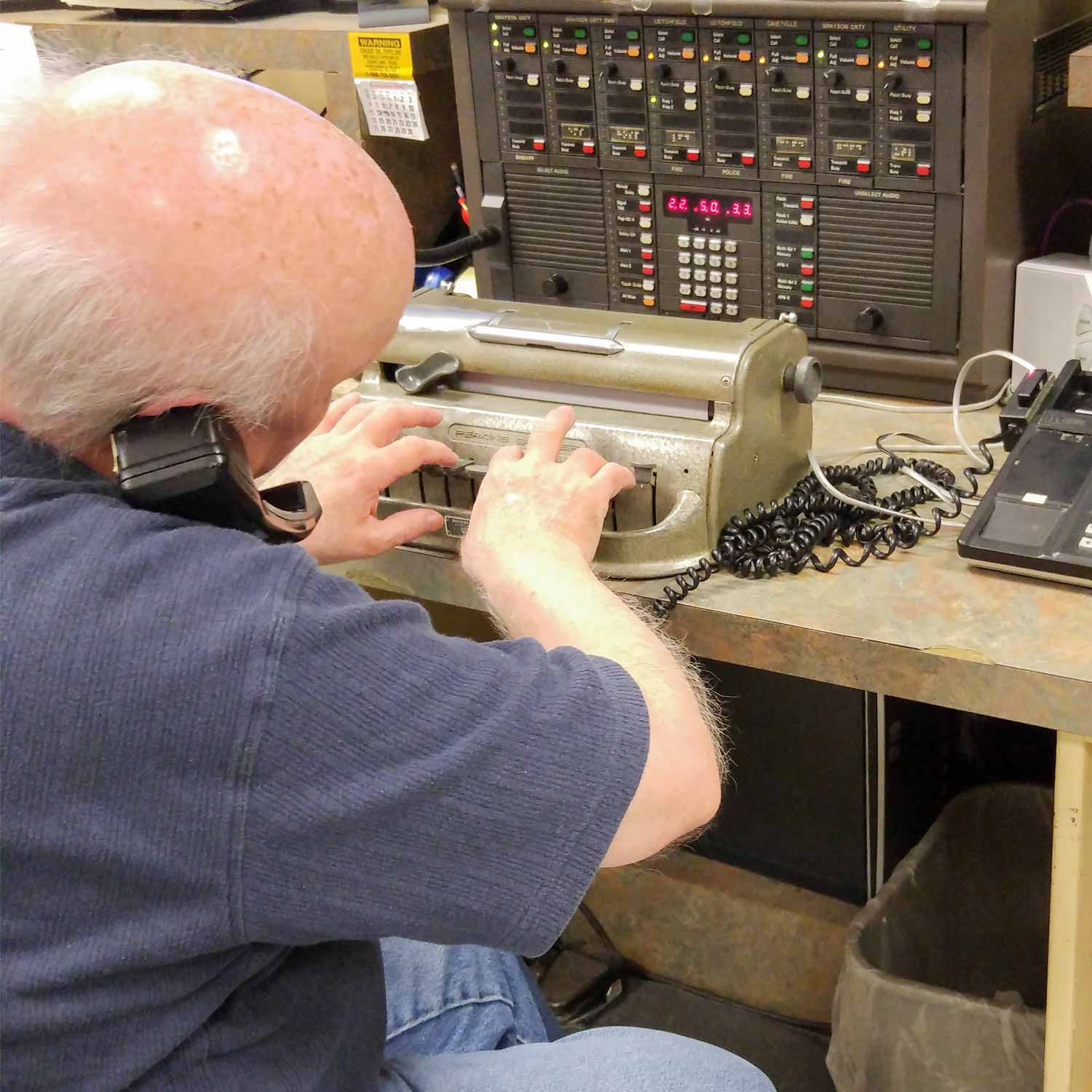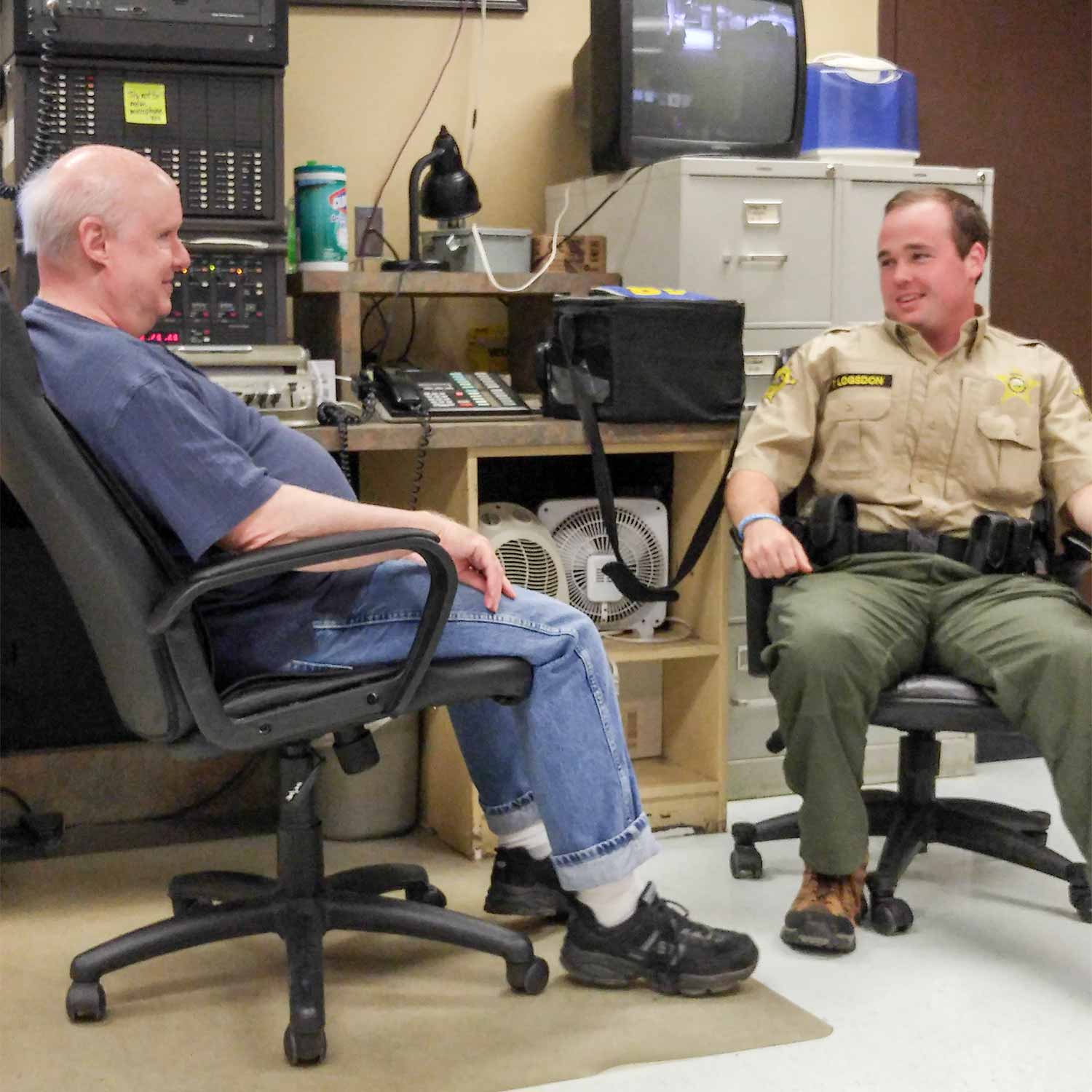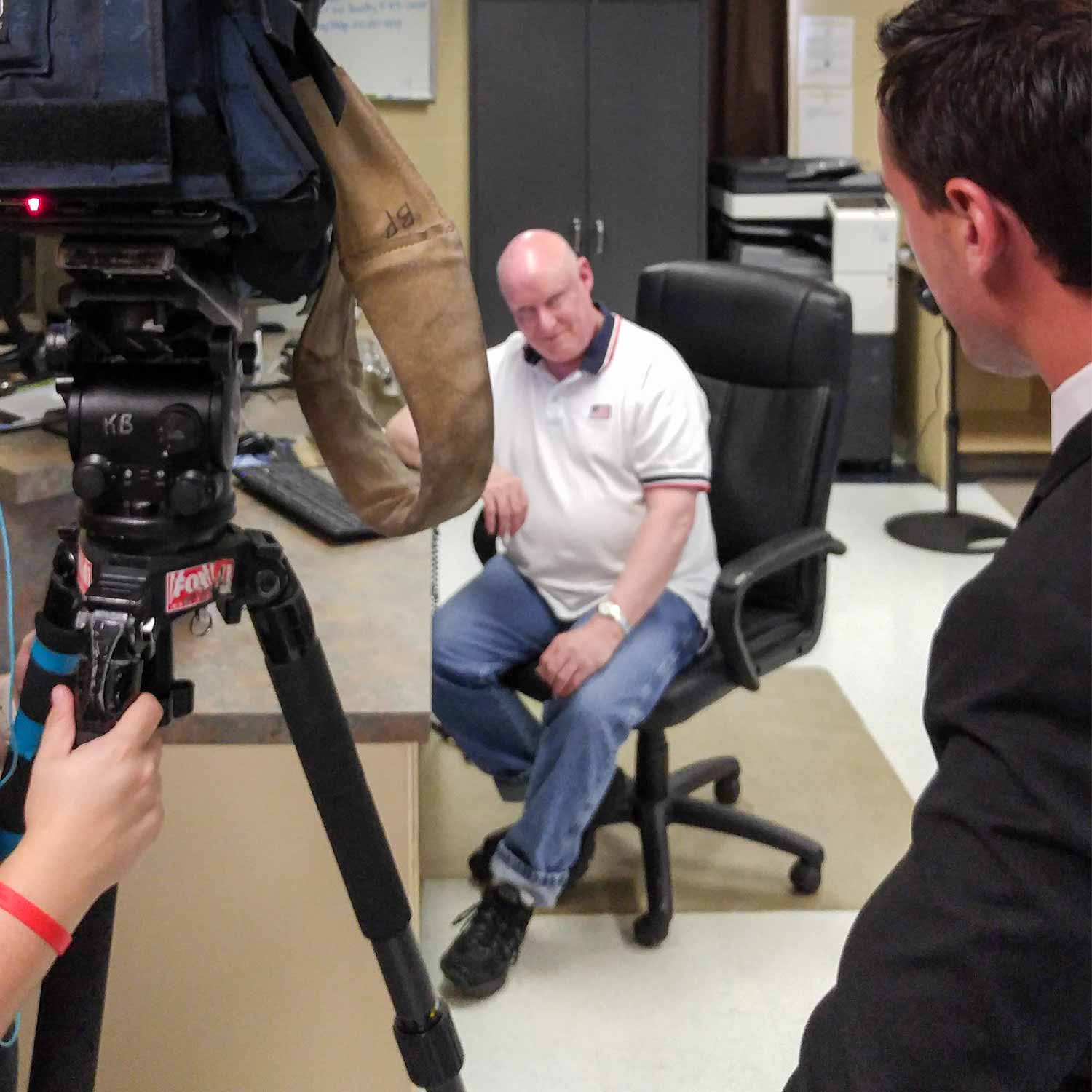Seeing Them Home Safely
Photo above courtesy of WDRB.com
Before police, fire or emergency medical personnel arrive on scene, those who operate public safety dispatch centers will first hear the frantic voices of desperation. Grayson County E-911 Dispatcher Don Kirk, 63, has been one of the calm voices on the other end, helping guide first responders from one scene to the next, since he began his career 30 years ago this past spring.
He is the embodiment of the profession’s dedication to seeing a call through to the end, which carries a certain irony. Kirk – who does his job with expert precision – is blind.
Kirk was born visually impaired and could read large print early in life. Soon after starting grade school, his vision worsened, and now the award-winning dispatcher can only see shadows.
Last year, Kirk’s exceptional career was honored when he received the Kentucky Telecommunicator of the Year Award from the Association of Public-Safety Communications Officials.
I was like most people who did not know what to do or where to go. I tried things, and in my case, I’d hit a wall because I knew I couldn’t do it because of my [vision] limitations. At one time, I was going to go into meteorology and I passed all the basic courses at Murray State University. I was going to transfer to Purdue University [West Lafayette, Ind.] or somewhere like that, but I hit all the graphics stuff, and I couldn’t do it. Then I went into outdoor therapeutic recreation, but it got to where I had to do a lot of the visual stuff, especially when it came to the therapy part, and I wasn’t able to do it.
There was so much money allocated through a block grant to hire people with disabilities, train them, and get them out there in the competitive workforce. The original design of the training was in 1984, and I went through my preliminary testing to see if I qualified in late 1985 or early 1986. They could only take two or three people at a time. I think everyone in the group has retired and is not doing this anymore. I’m the last of the Mohicans.
They got in touch with agencies in whatever town you lived in to see if they were hiring and could place you when you got finished with your training. I was living here; my wife at the time was teaching in Grayson County, and they hired me.
I sucked up to the city council members, to be honest about it. The police chief at the time said, ‘Why don’t you come on in, and we will let you work with Mary-Anne Arnold Wheatley [former Grayson County E-911 supervisor]. Work with her and see what you think.’ I made all my little cheat sheets and notes for call outs, and I started working with her and not being paid – I was volunteering. During the day shift and second shift, it takes two people. I started going in there in October and it wasn’t until the following March when I drew my first paycheck.
Mostly it’s the tabs and they’re all in braille. I used to have a separate logging system, but I don’t use it now. I figured out how to use the Computer Aided Dispatch System we use. I figured out how to use it and I got a voice-processing program, and I have my old Perkins Braille writer. It’s almost 50 years old, and I still use it. I throw a lot in CADS, and I used to print out all my 911 sheets, but I wore out three printers over the years, so I have gone back to CADS.
We get a lot more calls now for cyber bullying and people sending threatening texts to one another. Technology has increased the workload.
I guess it is part of human nature, no matter what line of work you’re in, but when those residents calling in don’t listen to what you’re telling them, it can get frustrating. That’s what I like least. What I like most is at the end of the shift, everyone is where they need to be and they got home and everyone is safe. That’s what it is all about. Making sure your officers get to go home, making sure EMS guys are not in harm’s way and making sure the firefighters are able to do their job and nobody has gotten hurt.
Receiving the [APCO] award was a surprise. [Grayson County] Sheriff Norman Chaffins put me in for it. I did not know about it until he called me one day and told me I won. I had no clue what he was talking about. It was nothing I strived for; I did my job and I was recognized. That is the nature of the award. Someone recognizes what he or she sees as superior job performance or something of that nature.
To me, it’s like a lifetime achievement award because I’ll probably never get anything beyond it for all the years I’ve put in. That is what I think of it. I could not work with a better team. There could not be a better team here than the ones we have. There are 11 of us, including supervisory positions.
I might as well keep on working as long as I can. When the technology changes, and I think it eventually will, then I will need to get out and do something else.
I guess you would have to say my career is one of perseverance, adapting to change, and rolling with the punches. I stuck to it. If I hadn’t had anyone of those qualities, I wouldn’t have made it. You’re juggling it all. I had many life changes, including two divorces and a couple children who are grown now, plus you’re trying to make a living for yourself, and you hope to leave a little something for the kids.








